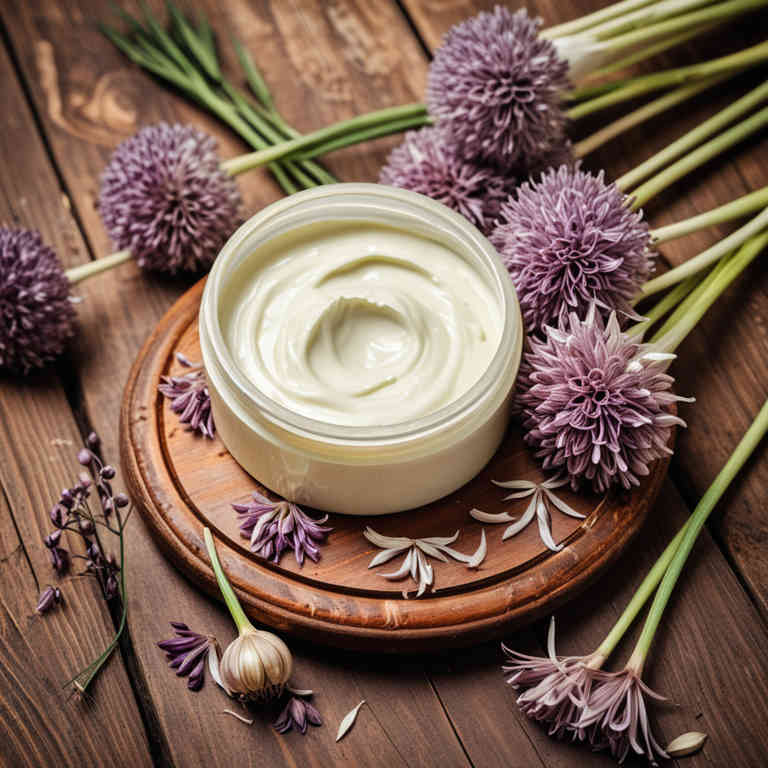Allium sativum cream for medicinal use

Allium sativum cream is a topical preparation made from garlic, which is known for its medicinal properties.
It is created by extracting the active compounds from garlic cloves and incorporating them into a base suitable for application on the skin. In herbalism, this cream is used to treat various skin conditions, such as fungal infections and inflammation. The active components in garlic, like allicin, have antimicrobial and anti-inflammatory effects.
It is often applied directly to the affected area to promote healing and reduce symptoms.
Uses
Allium sativum cream has been used to treat various skin conditions and inflammatory disorders for centuries.
Historically, it was utilized in traditional medicine systems like Ayurveda and Chinese medicine for its antimicrobial and anti-inflammatory properties. The cream, derived from garlic, has been applied topically to alleviate symptoms of eczema, psoriasis, and fungal infections. In modern times, it is increasingly recognized for its potential in wound healing and reducing oxidative stress in the skin.
Its use continues to evolve with ongoing research into its therapeutic applications.
Benefits
Allium sativum cream has health benefits such as reducing inflammation, supporting skin health, and potentially aiding in the treatment of minor skin conditions.
This cream is made from garlic, which contains bioactive compounds like allicin that have antimicrobial and antioxidant properties. It may help in preventing infections and promoting wound healing due to its natural antiseptic qualities. The anti-inflammatory effects of Allium sativum cream can also provide relief for conditions like eczema or psoriasis.
Regular use of this cream may contribute to overall skin wellness and immune support.
Constituents
Allium sativum cream active constituents include allicin, sulfur compounds, and various phytochemicals such as diallyl disulfide and diallyl trisulfide.
These compounds are known for their antimicrobial, anti-inflammatory, and antioxidant properties. Allicin, in particular, is responsible for the characteristic odor of garlic and is believed to contribute to the cream's therapeutic effects. The sulfur compounds may help in reducing skin inflammation and promoting wound healing.
This herbal preparation is often used topically to address skin conditions and support overall skin health.
Preparation
To make Allium sativum cream, begin by finely grinding fresh garlic cloves into a paste.
Next, mix the garlic paste with a small amount of water or a carrier oil such as coconut oil to create a smooth consistency. Then, add a few drops of essential oil, like lavender or tea tree oil, for additional therapeutic benefits. Finally, blend the mixture thoroughly and store it in a sterilized glass jar in the refrigerator.
This preparation is often used for its antimicrobial and anti-inflammatory properties.
Side Effects
Allium sativum cream may lead to skin irritation or allergic reactions in some individuals due to the presence of allicin and other bioactive compounds.
It is commonly used for its antimicrobial and anti-inflammatory properties, making it a popular choice for treating minor skin conditions. However, prolonged use could result in excessive dryness or sensitivity, especially in those with compromised skin barriers. In rare cases, systemic absorption might cause gastrointestinal discomfort or interact with certain medications.
It is important to consult a healthcare professional before using this preparation, particularly for individuals with known allergies or skin sensitivities.